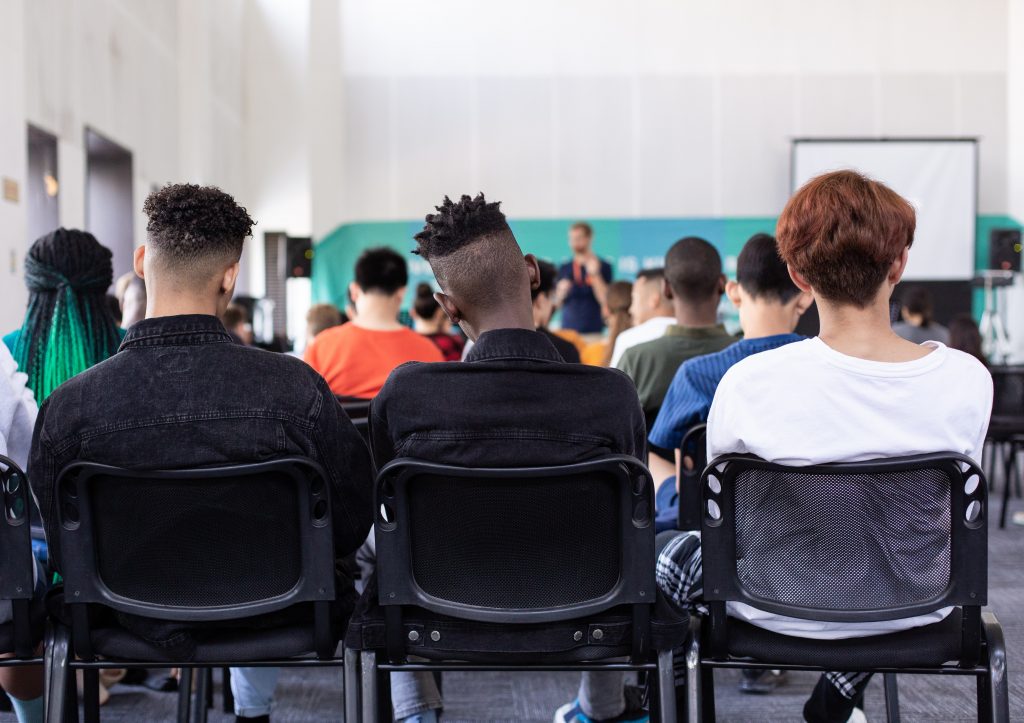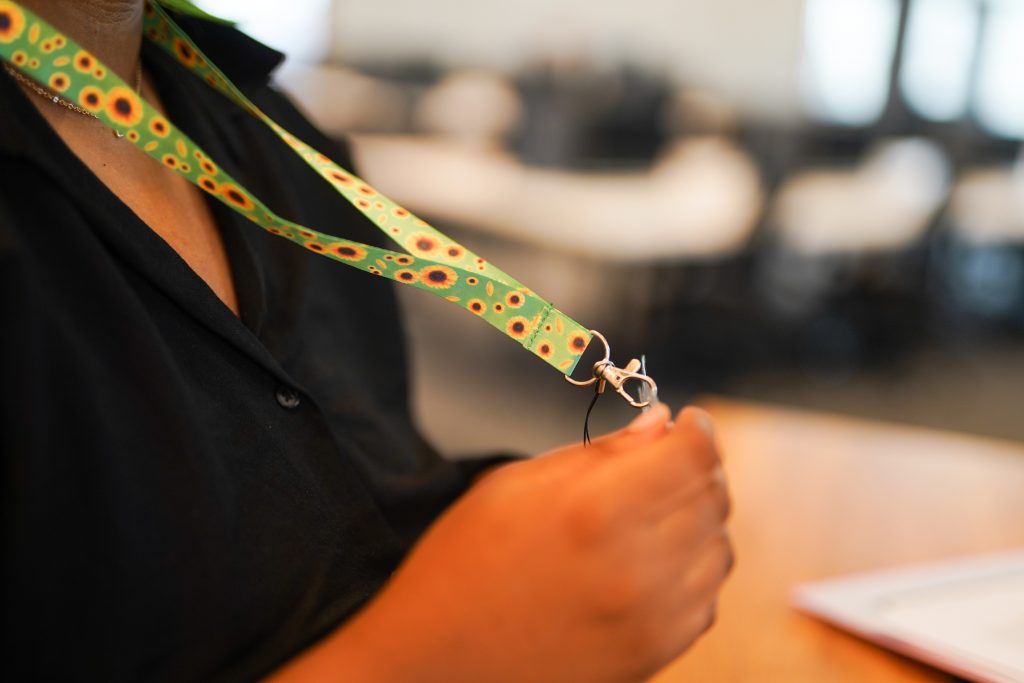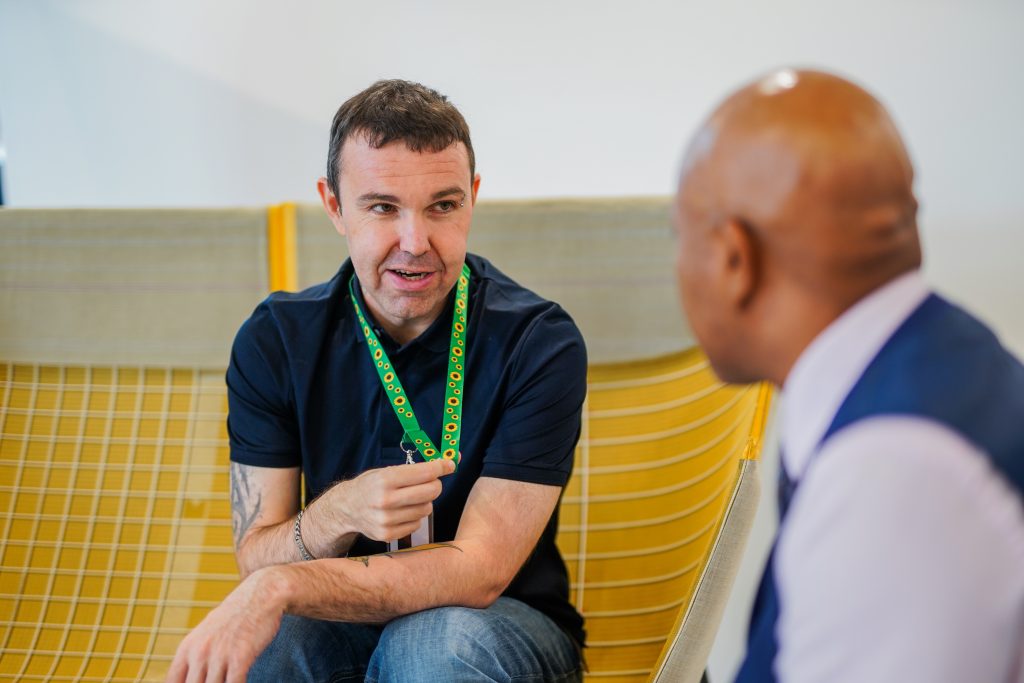 " alt="thumbnail" />
" alt="thumbnail" />
Annual Adoption Lecture 2024
Following our hugely successful adoption conference in 2023, we are delighted to launch our Annual Adoption Lecture 2024. Our guest speaker will be Professor Laura Machin from Lancaster University, who will present her work on the Adopters Advocacy Project. Registration is now open. Professor Machin – herself both an adopted child and an adoptive parent – sits on the All Party Parliamentary Group on Adoption and Permanence. She launched the Adopters Advocacy project to highlight the voices and needs of prospective adopters and adopters during the adoption process and after a child has been placed, without diminishing the needs of adoptees and their birth families. Her current project focuses on the mental health and support needs of adopters, based on a series of focus groups with adopters. The lecture will be held on Wednesday 20th March, 10.30am-12.00pm in Glamorgan Building, Cardiff, the heart of social sciences at Cardiff University. It will be a hybrid event. Please REGISTER NOW to attend in person or online.
 Room -1.80, Cardiff University Glamorgan Building, King Edward VII Avenue, Cardiff, CF10 3WT (or online)
Room -1.80, Cardiff University Glamorgan Building, King Edward VII Avenue, Cardiff, CF10 3WT (or online)
 10:30
- 20/03/2024
10:30
- 20/03/2024
 " alt="thumbnail" />
" alt="thumbnail" />
Webinar: Improving practice with fathers in children’s services
Improving practice with fathers in children’s services Presenter: Jonathan Scourfield, Professor of Social Work, CASCADE, Cardiff University 15th April 2024 12 - 1pm There is a long-standing and ongoing problem of practice in children’s services focusing primarily on mothers and failing to properly engage fathers (the term used here in an inclusive sense). This works against the interests of women, men and children. The causes of the problem are complex. The presenter first studied it when doing his PhD in the late 1990s and more recent evidence would suggest there has been little change since then. This webinar will introduce the issue and then describe research-based training and organisation development designed to improve the situation. ISAFE (Improving Safeguarding through Audited Father-Engagement) was developed by The Fatherhood Institute and CASCADE at Cardiff University. Its effectiveness is currently being tested in a randomised controlled trial funded by Foundations, the national What Works Centre for children and families. ISAFE is based on previous work by the two organisations: training developed by the presenter and colleagues in Cardiff and a multi-layered father-engagement intervention designed and implemented by the Fatherhood Institute, which the presenter evaluated. Also, the skills training element introduces motivational interviewing, the use of which in children’s services has been pioneered by CASCADE academics.
 Online, ZOOM
Online, ZOOM
 12:00
- 15/04/2024
12:00
- 15/04/2024
 " alt="thumbnail" />
" alt="thumbnail" />
CARE Seminar: 'Promoting carers wellbeing: current research and future directions'.
Research studies about carers’ wellbeing over the last decade have highlighted the impact of caregiving on informal carers’ financial, physical and mental health. In this seminar hosted by the Centre for Adult Social Care Research (CARE) at Cardiff University we focus on the implications for carers’ social wellbeing and present some of the latest research from the UK and Australia about the social welfare of carers. Join us for this free in-person seminar.
 Event Space, sbarc|spark, Maindy Road, Cardiff, CF24 4HQ
Event Space, sbarc|spark, Maindy Road, Cardiff, CF24 4HQ
 11:00
- 21/05/2024
11:00
- 21/05/2024
 " alt="thumbnail" />
" alt="thumbnail" />
Webinar: Enabling talk and reframing messages: Working creatively and collaboratively to create impact
This presentation explores how creative and collaborative approaches can be drawn on as techniques of data production and tools of dissemination and impact. The focus of the presentation is a qualitative study into the educational experiences and aspirations of care experienced children and young people in Wales (n=67). The project worked with care experienced peer researchers and drew on visual, creative, and participatory techniques to explore participants experiences of education and, importantly, their opinions on what could be done to improve it. This multimodal approach allowed space for participants to think through their subjective, mundane, but important, experiences that operate alongside, and interact with, more structural challenges. Alongside a report, book and journal articles, a range of films, magazines, artwork, and music outputs were developed, as well as training workshops and a website, to ensure that the project recommendations could reach wide and diverse audiences. This presentation suggests that the perspectives of children and young people need to be given a platform to inform policy and practice. Accordingly, researchers need to be creative in their approaches to both fieldwork and dissemination; harnessing the impact of the arts to make positive changes in the everyday lives of children and young people.
 Online, ZOOM
Online, ZOOM
 13:00
- 09/04/2024
13:00
- 09/04/2024
 " alt="thumbnail" />
" alt="thumbnail" />
Webinar: Working with stakeholders to enhance responses to child criminal exploitation
This session will provide an overview of our work on child criminal exploitation in Wales. It will begin with a brief introduction about how CASCADE became involved in this research and the importance of working with stakeholders from the research design stage to the co-production of research outputs. Presenter: Dr Nina Maxwell The session will consider how the research team engaged with young people, parents and professionals to ensure the research added value to existing practice. The session will finish with a critical overview of the impact of this research portfolio on policy and service provision with reference to some of the co-produced outputs.
 Online, ZOOM
Online, ZOOM
 12:00
- 22/04/2024
12:00
- 22/04/2024
 " alt="thumbnail" />
" alt="thumbnail" />
Webinar: 'The Enlightened Social Worker: An Introduction to Rights Focused Practice' - Book Launch
Professor Donald Forrester 'The Enlightened Social Worker' Book Launch In this webinar, Donald Forrester introduces his new book, which positions human rights as central social work practice.
 Online, ZOOM
Online, ZOOM
 13:00
- 10/04/2024
13:00
- 10/04/2024
 " alt="thumbnail" />
" alt="thumbnail" />
BOOK LAUNCH: Working with Children who have Experienced Neglect - Victoria Sharley & Alyson Rees
**An exclusive 25% discount code will be given to attendees** Neglect is the most common reason for a child to be on a protection plan in the UK – in 2020, this amounted to over 27,000 children. Neglect is also present in around three-quarters of all case reviews into the death or serious harm of children. Research has found a clear intersection between neglect and other forms of abuse. But responding effectively to neglect and supporting affected children is widely acknowledged to be complex and challenging. So why is the most prevalent form of child maltreatment so difficult to respond to in practice? What are the common challenges experienced by practitioners in identifying and evidencing neglect? How can we ensure that children and carers receive the support they need? And how can we work together effectively, across organisations, to ensure that neglect is recognised and responded to in a timely way? The guide is designed to be a practical text for busy social workers and other practitioners in a range of services responsible for safeguarding children. With its easy to digest format and authoritative advice, this guide is a vital companion for all those working for and concerned with children’s welfare.
 Online, Zoom
Online, Zoom
 12:00
- 11/06/2024
12:00
- 11/06/2024
 " alt="thumbnail" />
" alt="thumbnail" />
Webinar: The Basic Income for Care Leavers in Wales Pilot Evaluation - Findings from Year 1
The Basic Income for Care Leavers in Wales pilot, launched in July 2022, is unique in several ways. No other basic income scheme has given regular payments as large as those received by young people involved in the pilot, nor have other basic income schemes been open to a national cohort of care leavers from the age of 18 for two years of payments. The pilot is being evaluated by a team led by researchers at CASCADE, Cardiff University and the evaluation is now in its second year. This session is based on the first annual report from the study, which includes early findings. We will describe the group of young people receiving the basic income, present a picture of how the scheme is intended to work, and discuss perceptions and experiences of professionals involved with the scheme. Presenter: David Westlake, Co-Investigator, CASCADE at Cardiff University.
 Online, ZOOM
Online, ZOOM
 13:00
- 11/09/2024
13:00
- 11/09/2024
 " alt="thumbnail" />
" alt="thumbnail" />
Webinar: Wellbeing in Schools and Colleges (WiSC) - Findings and Recommendations
This presentation will include findings from ‘Wellbeing in Schools and Colleges (WiSC)’, an empirical research study in Wales, where the objective was to understand stakeholder experiences of delivering and receiving mental health and wellbeing provision for care-experienced children and young people (CYP) in secondary schools and FE Colleges, in order to develop recommendations to enhance service quality and ensure equitable access. In particular, it explored the relationships between social workers, school and college staff, mental health professionals, and care-experienced CYP and how they impacted on delivery and receipt of wellbeing provision. The focus of the presentation will be on the qualitative findings from this mixed methods study including case studies with secondary schools, FE colleges, social care teams, and mental health teams. Firstly, study themes relating to care-experienced CYP’s mental health and wellbeing needs and how schools and colleges try to meet these needs will be explored. Then themes relating to the role of cross-professional boundary working between social care and education staff will be discussed, including the challenges and opportunities of working in this way and how they differ according to age and care experience, e.g. foster care and kinship care. The presentation will conclude with recommendations for practice and policy in relation to care-experienced CYP’s mental health and wellbeing in educational settings and as they transition between them.
 Online, ZOOM
Online, ZOOM
 13:00
- 18/09/2024
13:00
- 18/09/2024
 " alt="thumbnail" />
" alt="thumbnail" />
Webinar: The voice of young people with learning disabilities and autism in supported employment
"The voice of young people with learning disabilities and autism in supported employment: Engage to Change and building partnerships to promote what works" This presentation will explore the importance of partnership working in Supported Employment, based on Engage to Change, a 7-year national project supporting young people aged 16-25 with a learning disability and/or autism, to achieve paid employment with job coach support. The project offered employment support and opportunities through a partnership of organisations, aiming to promote cultural and social change in Wales and to influence policy to promote employment for young people with learning disabilities. The presentation will be led by the Engage to Change Lead Ambassador who is an Autistic young person with lived experience, and two researchers. We aim to inspire attendees on building strong partnerships between organisations on national and international levels. We will include the importance of involving member-led and self-advocacy organisations to empower young people with learning disabilities. It will also include a description of changes over recent years and how accessible working and co-production actively supported influencing work with young people, employers, local government, families and carers. The presentation includes videos of people with lived experience and activities for attendees to participate in. We aim to explore what works and how lessons learnt can be used to promote cultural change and enhance inclusion in employment.
 Online, ZOOM
Online, ZOOM
 13:00
- 21/10/2024
13:00
- 21/10/2024
 " alt="thumbnail" />
" alt="thumbnail" />
Webinar: Babies in care proceedings – what do we know about parents with learning disabilities or difficulties?
This webinar will explore findings from a major new study led by Professor Burch in England (published by NFJO, 2024) exploring the prevalence and experiences of parents with learning disabilities or difficulties with babies in care proceedings. The study builds on earlier (2019) research in Wales exploring similar themes for Welsh Government. A major finding from the 2024 study includes that, in over one third of recently concluded care proceedings involving babies, at least one parent had learning disabilities or difficulties. What does this mean for services and professionals working with children and families at risk of entering care? This 1 hour webinar will consider this and other findings from both studies regarding parent experiences and their implications for national policy makers, local authorities and people working in the family courts (judges, barristers and solicitors). It will also offer an opportunity for questions and reflections from people joining the webinar.
 Online, ZOOM
Online, ZOOM
 13:00
- 08/10/2024
13:00
- 08/10/2024
 " alt="thumbnail" />
" alt="thumbnail" />
What About Me? People with learning disabilities living on the edges of support: what is it like, and what needs to change?
This webinar will explore the "What About Me?" project. Funded by the NIHR (Research for Patient Benefit), the project investigates what it is like to be a person with learning disabilities who relies on unfunded support. The project has been co-produced with self-advocates, and this presentation will explore the experiences of those who have been involved in developing the research, doing the interviews, and making sense of what the data says. We will also explore the importance of the topic for people with learning disabilities and what we have learned so far.
 Online, ZOOM
Online, ZOOM
 13:00
- 14/10/2024
13:00
- 14/10/2024
 " alt="thumbnail" />
" alt="thumbnail" />
Webinar: Ageing with Learning Disabilities
People with learning disabilities live with many absences across their lives due to epistemic injustice and ignorance. These absences include respect, employment, sexual intimacy, parenthood and, as we found in our recent study Growing Older, Planning Ahead, ageing. Sara Ryan discusses these findings and reflect on the role of research in actually changing things.
 Online, ZOOM
Online, ZOOM
 13:00
- 09/10/2024
13:00
- 09/10/2024
 " alt="thumbnail" />
" alt="thumbnail" />
Webinar: Educational pathways and outcomes for care-experienced children: a population-scale data linkage study
"Children who have relatively short periods of care – and/or who experience care in early or late childhood – commonly face the most significant deficit in their educational attainment compared to those with longer and more stable care experiences. Explanatory analyses suggest suspensions, exclusions and being an autistic learner could explain some of this disadvantage, whereas schools that support disadvantaged children could be a protective factor. Yet, a knowledge gap remains in terms of care movements, educational attainment and “what works”, so we ask three questions: 1. How can we generate new insight into care-experiences using measures such as time in the care system, type of care, and reasons for care? 2. What is the educational attainment (age 7 and 11) for the different types of care identified? 3. What school and individual aspects disrupt or explain the relationship between care-experiences and educational attainment at age 16? Leveraging the Secure Anonymised Information Linkage (SAIL) Databank, we have accessed new data and constructed an electronic cohort of children born between 1st September 2000 and 31st August 2003. Using this rich data source, we answer our three questions above. Our talk will discuss: What are common patterns of the "care-experience"? And how do these map on to educational attainment? We highlight some key aspects that may disrupt educational attainment, depending on specific care-experiences (i.e. early adoption vs. late childhood foster care). Policymakers and those working in related sectors should consider these results in relation to school policy and practice to support care-experienced young people reach their potential."
 Online, ZOOM
Online, ZOOM
 13:00
- 06/11/2024
13:00
- 06/11/2024
 " alt="thumbnail" />
" alt="thumbnail" />
Understanding suicide risk in parents caring for disabled children
New research has found that parent carers may be a high-risk group for suicide. More than 40% have thought about suicide, with some already having attempted suicide. Depression, dysfunctional coping, and feeling trapped in the caring role all increase the likelihood that parents of disabled children will contemplate suicide. This presentation will introduce you to the evidence on suicide risk in parent carers, explore the implications for policy and practice, and provide opportunities for you to discuss your own experiences of supporting at-risk parent carers.
 Online, ZOOM
Online, ZOOM
 13:00
- 29/01/2025
13:00
- 29/01/2025
 " alt="thumbnail" />
" alt="thumbnail" />
ASPIRE: A Model of Support for Children in Wales with a Parent in Prison
The ASPIRE Project (Actioning a Schools & Prisons Independent Research Evaluation) In July 2023, the Welsh Government commissioned the ASPIRE Team to explore a national support model for children affected by parental imprisonment in Wales. The team, led by Families Outside and supported by academics and consultants, conducted a 12-month study involving interviews, observations, and focus groups. This webinar will present key findings and recommendations for supporting these children and young people in Wales.
 Online, ZOOM
Online, ZOOM
 12:00
- 11/02/2025
12:00
- 11/02/2025
 " alt="thumbnail" />
" alt="thumbnail" />
Webinar: Food Glorious Food
This webinar introduces the NIHR-funded Food Glorious Food project, offering early insights from its realist evaluation. People living with dementia face a heightened risk of malnutrition and dehydration. However, food plays a far more significant role than nutrition alone – it can influence psychosocial wellbeing, foster a sense of citizenship, and support personal and cultural identity. Positive experiences in these areas are vital to living well with dementia. The Food Glorious Food project investigates how food-related practices within community-based group support impact people from diverse backgrounds and circumstances. It is a collaboration between the Association for Dementia Studies (University of Worcester), Cardiff University, University of Oxford, and the University of Wolverhampton. The project is employing flexible qualitative methods to generate data from ethnically diverse community support groups. The goal is to identify what works, for whom, in what circumstances.
 Online
Online
 12:00
- 18/03/2025
12:00
- 18/03/2025
 " alt="thumbnail" />
" alt="thumbnail" />
Webinar: “You can’t do that in dementia care” – meeting the challenges of inclusive dementia care.
At least 25,000 people from minority ethnic communities are living with dementia in the UK. However, there are likely to be important differences in the services that people from these communities receive compared to their white-British counterparts. For instance, people from many communities are significantly less likely to receive a diagnosis of dementia and when they are diagnosed then this is likely to be at a later stage in the illness when they are more severely impaired. Consequently, they are likely to miss out on receiving NICE approved treatments including medication, while they and their families are likely to live with increased levels of strain and uncertainty. There are also important differences in the services that people from these three communities receive later in the dementia pathway – with service users often reporting that statutory provision simply does not meet their needs. Instead, people from these communities are more likely to be reliant on local, community-based organisations outside the dementia mainstream for support. One alternative method of delivering services is for NHS and other agencies to work increasingly in partnership with community organisations who represent these communities. While this has many potential benefits, there are also many challenges to this work – for instance often community workers do not feel that their expertise is sufficiently valued, or that the constraints on their work are fully appreciated. This presentation will outline these challenges and briefly outline some potential solutions to these.
 Online
Online
 13:00
- 25/03/2025
13:00
- 25/03/2025
 " alt="thumbnail" />
" alt="thumbnail" />
Webinar: Exploring the experiences of LGBTQ+ people living with dementia
It is increasingly appreciated that one’s ‘social location’ (i.e. age, gender identity, socioeconomic status, ethnicity, living context, sexual orientation, etc) will affect their experiences of living with dementia. For some, this may result in inequalities and inequities experienced throughout the dementia care pathway, from pre- to post-diagnosis. Whilst we know that dementia may pose specific challenges for LGBTQ+ people, research studies with this community remain scarce. There is also limited literature that has reported the first-hand experiences of LGBTQ+ people living with dementia, meaning their stories have been unheard. In this webinar, John will present findings from his recent research studies that have focussed on understanding better the health and social care experiences of LGBTQ+ people with dementia. Their rich and diverse stories will be discussed and some guidance for best practices to support LGBTQ+ people living with dementia will be provided.
 Online
Online
 13:00
- 27/03/2025
13:00
- 27/03/2025
 " alt="thumbnail" />
" alt="thumbnail" />
Webinar: Keeping well, before, during and after a dementia diagnosis for people who have Down’s syndrome
Abstract to follow
 Online
Online
 12:00
- 31/03/2025
12:00
- 31/03/2025
 " alt="thumbnail" />
" alt="thumbnail" />
Webinar - Investing in prevention and support
At a time of crisis and reform for children's social care in England, the need to reinvest in services that support families has never been more pressing. In this seminar, Calum Webb will present findings from an extensive analysis of the association between spending on preventative and supportive children and family services and rates of child welfare interventions in England. This will be followed by a discussion on the potential consequences and relevance of the findings for Wales.
 Online, Teams
Online, Teams
 13:00
- 30/04/2025
13:00
- 30/04/2025
 " alt="thumbnail" />
" alt="thumbnail" />
Webinar: Ethnic and Religious Differences in the Healthcare Use of Children Receiving Care and Support in Wales
Children receiving care and support (CRCS) from the child welfare system represent a vulnerable subpopulation who often face complex and multifaceted challenges, usually stemming from abuse, neglect, or disability. Despite the significant health disparities associated with this group, limited research has explored how these outcomes differ across ethnic and religious identities. This paper addresses this gap by examining ethnic and religious differences in healthcare utilisation among CRCS children using comprehensive linked administrative data from Wales. We linked CRCS records from 2017 to 2019 with the 2011 and 2021 Office for National Statistics Census data to identify the child’s religious affiliation and improve ethnicity completeness. Additionally, we integrated these records with primary and secondary care health data for the corresponding years. Leveraging these innovative data linkages, we assessed ethnic and religious variations in two key areas: (1) the likelihood of accessing different healthcare services (General Practitioner [GP], hospital inpatient care, and Accident & Emergency [A&E]) and (2) the probability of using healthcare for common conditions, like mental health issues and injuries.
 Online, Teams
Online, Teams
 12:00
- 07/05/2025
12:00
- 07/05/2025
 " alt="thumbnail" />
" alt="thumbnail" />
Screening of Towards Brotherly Love: Care, Catastrophe and Change
ExChange Wales is excited to invite you to a screening of Omar Mohamed's new documentary, Towards Brotherly Love: Stories of Care, Catastrophe and Change. This powerful film explores the journeys of Black children and young people with care experience in Philadelphia, Pennsylvania as well as their families and professionals working with them, highlighting the impact of systemic racism on the children's social care system in the US. Through stories of resilience and community innovation, the documentary inspires new routes for change and reform for consideration globally.
 Spark Event Space, Maindy Road, CF24 4HQ
Spark Event Space, Maindy Road, CF24 4HQ
 14:00
- 05/06/2025
14:00
- 05/06/2025
 " alt="thumbnail" />
" alt="thumbnail" />
Annual Adoption Lecture 2025
We are delighted to launch our Annual Adoption Lecture 2025. Our guest speaker will be Dr Tam Cane from the University of Sussex, who will present her research on the AFDiT framework - a framework intended to ensure positive identity outcomes for all minoritised ethnic children moving into transracial adoption.
 Lecture Room Glamorgan/S/0.81, Cardiff University
Lecture Room Glamorgan/S/0.81, Cardiff University
 14:00
- 16/06/2025
14:00
- 16/06/2025
 " alt="thumbnail" />
" alt="thumbnail" />
What is Life Story Work - How defining approaches to practice could provide clarity for practitioners and researchers
Life Story Work (LSW) is widely recognised in health and social care settings as a powerful approach for supporting care-experienced children and young people. By using biographical and narrative techniques, LSW creates opportunities for individuals to explore, reflect on, and make sense of their lived experiences. It is frequently referenced in policy, practice guidance, and research as a way to strengthen identity, promote placement stability, improve understanding of personal histories, and support emotional well-being. Despite this, recent studies suggest that the effectiveness of LSW in practice remains under-researched, with limited qualitative evidence and a wide variation in how LSW is delivered. Scoping reviews reveal diverse models—ranging in intensity, length, and approach—raising important questions about what LSW should actually include. In this webinar, we’ll explore how clearly defining approaches to Life Story Work can help provide clarity for practitioners and researchers, support better outcomes for children and young people, and move us closer to consistent, evidence-based practice.
 Online
Online
 12:00
- 02/07/2025
12:00
- 02/07/2025

